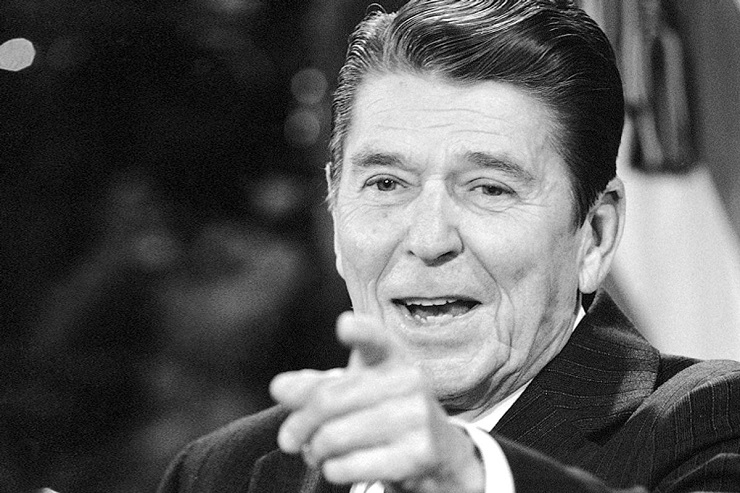July 26, 2021, the US State Department’s propaganda bullhorn Radio Free Europe – Radio Liberty (RFE/RL) had a new cause for celebration when a Gazprom pipeline broke and burst into flames in Russia. Is RFE/RL sending subliminal messages about another pipeline? It would not be the first time.
The pipeline, which is located in Russia’s Perm region about 1,400 kilometers east of Moscow, and delivers gas from Siberia’s Urengoy gas field. While there was no clear indication of gleeful cheering and champagne corks popping in the newsroom at RFE/RL, American interests are historically exuberant when Russian gas is interrupted.
Few remember today, but this pipeline was jeered by the Reagan administration for fears western Europe would become dependent on gas supplied by the Soviet Union. Comically, the logic back then was that the pesky Soviets would use the revenue to build more doomsday weapons to dominate the world.
In December 1981, Regan approved sanctions preventing American companies from exporting oil and gas technologies, which were deemed necessary for the pipeline construction. So, in case Nord Stream 2 and the Crimea situation have anyone confused, the gas has always been the real purpose of US/Russia friction. As if anybody in America even knows where Crimea is. Washington and the corporate fiends who run officials there, cannot come to grips with the certainty that Russians will one day soon get a huge gas and resources payday.
The only difference today is, European nations do not consider American sanctions illegal like they did back in Soviet days. In the 80s, Europe leaders bucked Ronald Reagan, who eventually had this to say:
“Well, they can have their damned pipeline. But not with American equipment and not with American technology.”
Guess what. Depriving the Soviets of US energy technologies forced the Soviet Union to develop their own. Now Russian technology is at least as good as western alternatives. This is illustrated, in part, in a review of a book by Georgetown Professor Thane Gustafson about how gas politics are so unchanging.
“Yet behind the scenes of these political upheavals, the real stakeholders acted differently. The Soviet Union developed home-grown alternative compressor and pipe technology — crucial for transporting gas — and Europe continued to sell technology that the Soviets could not produce at home.”
The review’s author Andrew Moravcsik goes on to discuss the logic of the whole energy conundrum where policy change is concerned. At the end of the article, he stresses the key takeaway, that being that the Russia-Europe energy co-dependence is here to stay. And, the author of the book prophesizes that we are entering a so-called “golden age of gas.” So, why all the poking, jabbing, and subterfuge from the western world order?
A section of the pipeline in the Poltava region exploded on June 17, 2014, one day after Russia limited the supply of gas to Ukrainian customers due to non-payment. Back in 2014, Russian authorities claimed that Yarosh, a Ukrainian right-wing insurgent and Banderist, issued threats against Russian pipelines. I don’t want to digress into this story here, but Yarosh and others were clearly backed by US and Europe entities bent on installing a NATO-friendly regime. One means toward this goal was certainly sabotage.
Meanwhile, the deal that was struck the other day between the US president and Germany’s Angela Merkel is far from a done deal in the minds of the elites standing against. On the German-Russia side of things, the slogan “Committed, Reliable, Safe” is good PR for the coming gas shipments. But for the dim faces standing behind the curtain this branding is a bullseye unless I miss my guess. All Angela Merkel and her backers need is a gas leak, subsea explosion, or a pumping station to go up for the deal to shift. It should be noted that all the Russophobia channels in Europe are focused on the environmental impact of Nord Stream 2. Kyiv Post, and the rest seem keen to bolster the movement, get this, to “Clog Nord Stream 2!”
I hope I am wrong, but I remember finding a kill list where Bandera supporters had joined hands with the UK Embassy, the US side, and used NATO servers to broadcast the names of enemies in Ukraine and elsewhere. No, I am not kidding. That’s another story. The point here is if I were the leader of Germany or Russia I’d put extra security on Nord Stream 1 and 2 for a while.
Phil Butler, is a policy investigator and analyst, a political scientist and expert on Eastern Europe, he’s an author of the recent bestseller “Putin’s Praetorians” and other books. He writes exclusively for the online magazine “New Eastern Outlook”.

